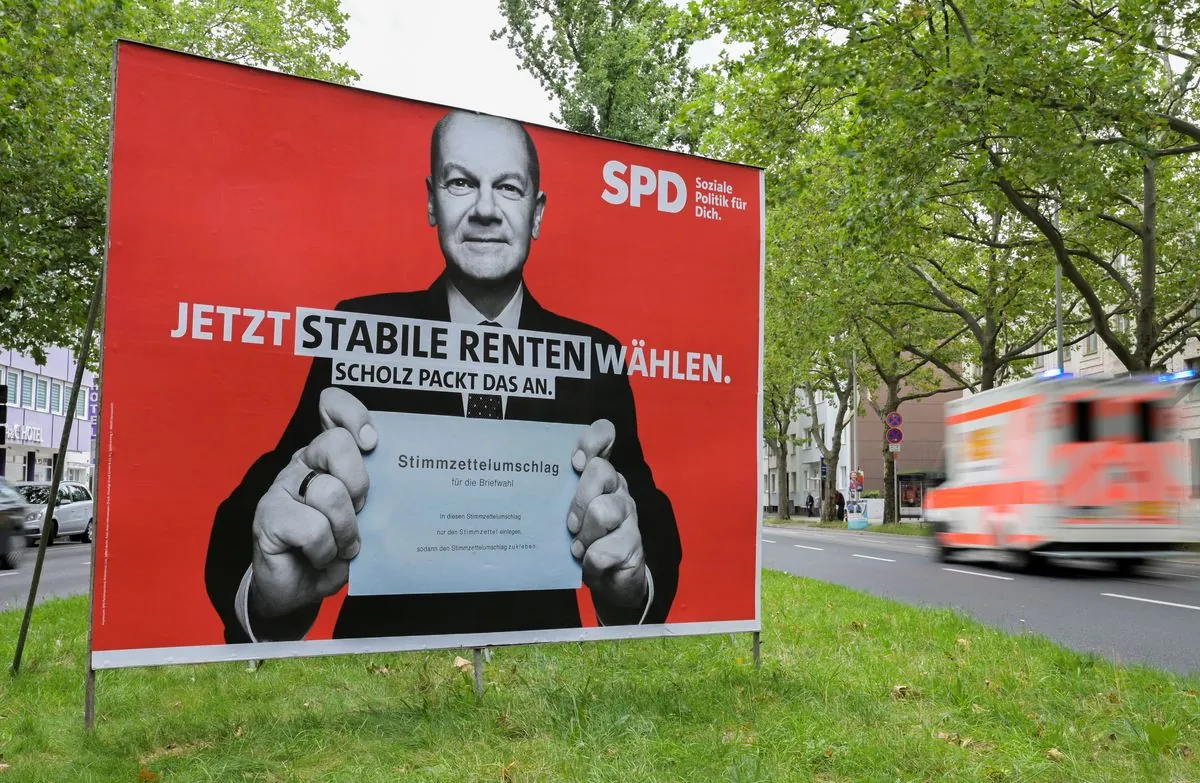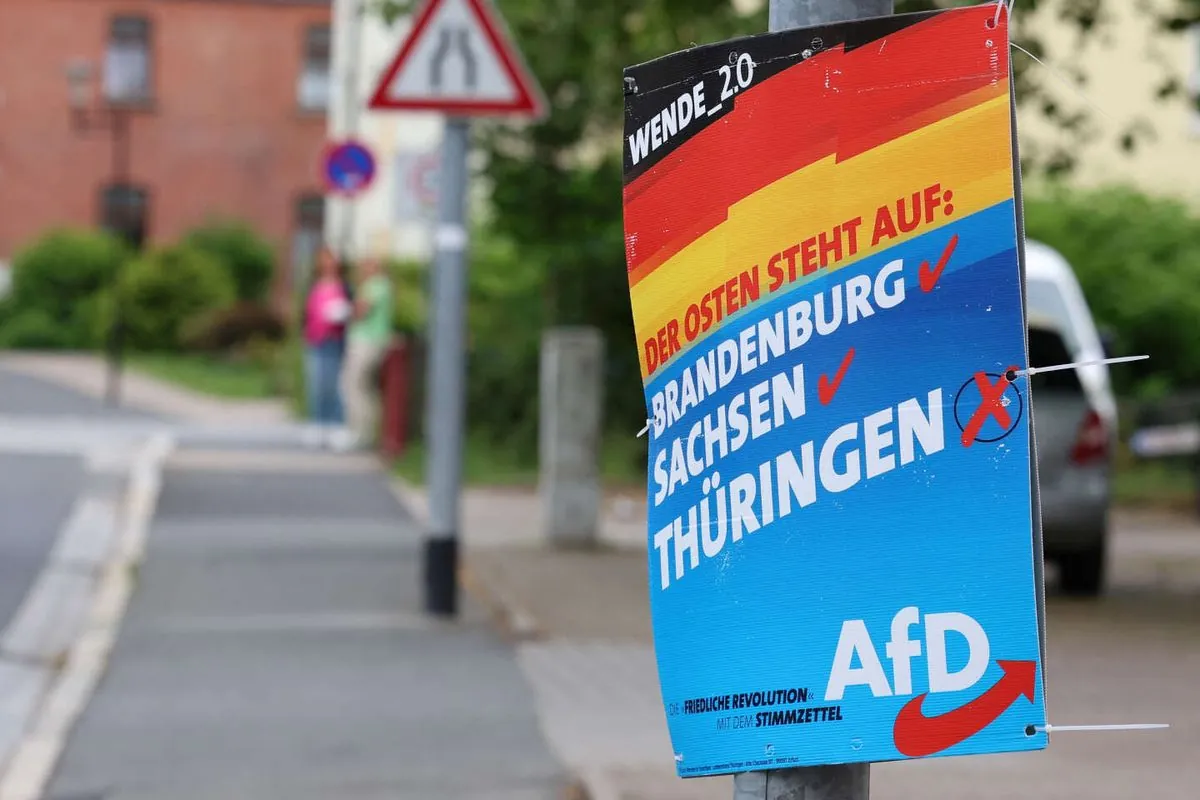Eastern German Elections Set to Reshape Political Landscape
Three eastern German states prepare for September elections, with populist parties gaining ground. The outcomes could significantly impact national politics and governance in these regions.

In September 2024, three eastern German states - Thuringia, Saxony, and Brandenburg - will hold elections that could potentially reshape Germany's political landscape. These states, with a combined population of approximately 8.5 million, represent 10% of Germany's total population and were formerly part of East Germany before reunification over three decades ago.
The elections are drawing significant attention due to the strong performance of two populist parties in opinion polls: the far-right Alternative for Germany (AfD) and the newly formed Sahra Wagenknecht Alliance (BSW). Both parties are known for their eurosceptic, anti-immigration, and Russia-friendly stances, as well as their opposition to military support for Ukraine.
Current polls suggest the AfD could become the largest party in all three states, potentially securing 24-30% of the vote. This would mark a historic moment, as it would be the first time a far-right party has achieved such prominence in German politics since World War II. The BSW, founded in January 2024, is also expected to perform well, with projections indicating 13-18% support across the three states.

Meanwhile, traditional parties are facing challenges. The conservative Christian Democratic Union (CDU) is competing with the AfD for first place in Saxony but trails in Thuringia and Brandenburg. Chancellor Olaf Scholz's Social Democratic Party (SPD), one of Germany's oldest political parties, is projected to receive only 6-7% of the vote in Saxony and Thuringia. Other parties in the governing coalition, including the Greens and the Free Democratic Party (FDP), are at risk of not reaching the 5% threshold required to enter the Thuringia state parliament.
The potential success of the AfD and BSW could complicate coalition formation and governance in these states. All other parties have refused to work with the AfD, which could lead to complex political maneuvering to form governments. In Thuringia, for example, the conservatives might seek to form a coalition or minority government with support from the BSW.
The outcomes of these elections could have far-reaching consequences. If the AfD achieves one-third of the parliamentary seats in Saxony and Thuringia, as projected, it would have a blocking minority for certain decisions, such as changes to the state constitution and judge appointments. This could significantly impact governance and decision-making processes in these regions.
These state elections will also influence the composition of the Bundesrat, Germany's federal upper house of parliament, which plays a role in national legislation. As such, the results may provide insight into the broader political mood in Germany ahead of next year's federal elections.
"We are confident that our message resonates with the people of eastern Germany, and we expect to see this reflected in the upcoming election results."
As the election date approaches, all eyes are on these eastern German states, with the potential outcomes poised to send ripples through Germany's political landscape and potentially reshape the country's political future.


































